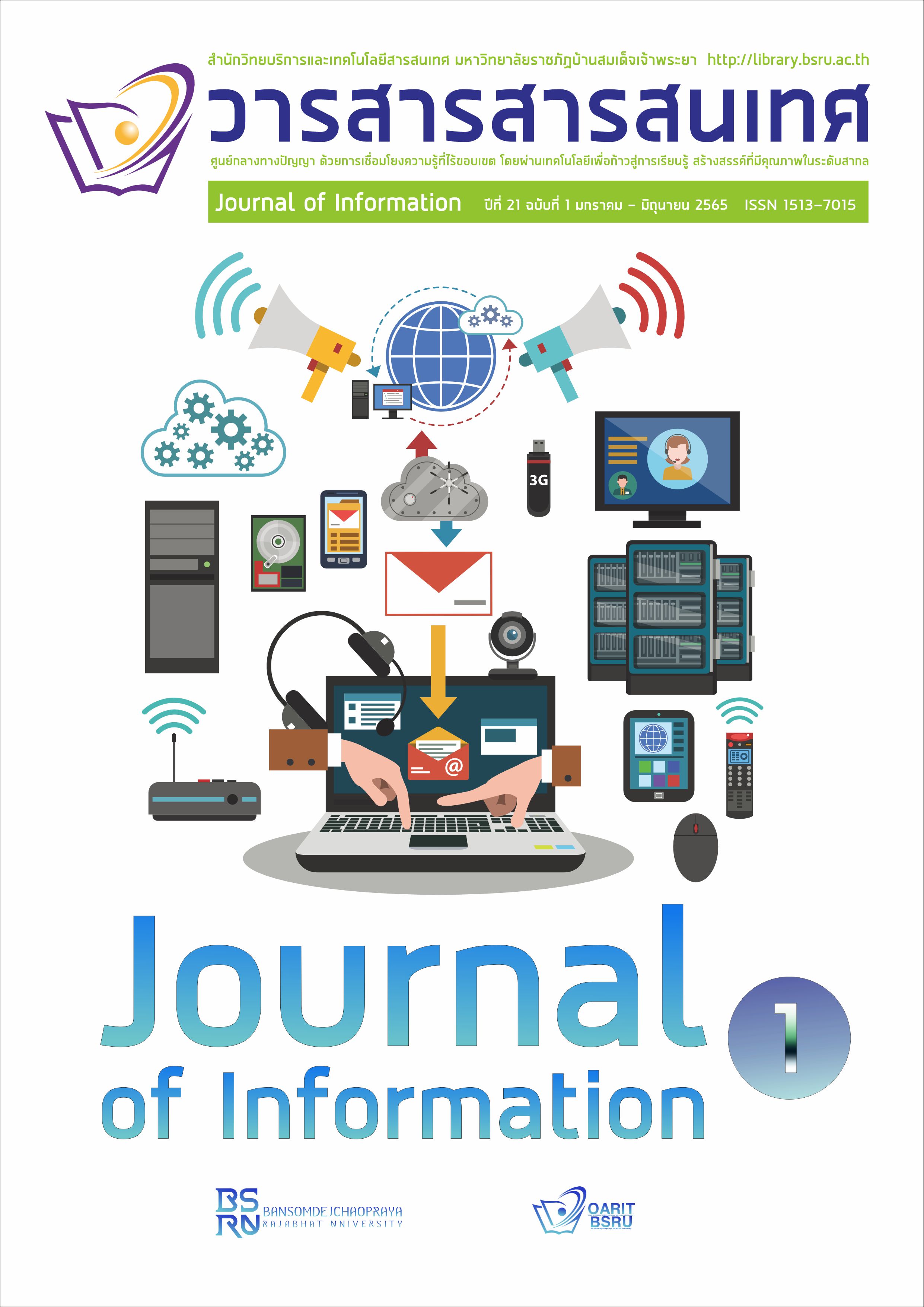Developing an Ontology Knowledge Based for Buddhist Tourist Attractions in Thonburi District
Keywords:
Buddhist attraction, Developing an ontology knowledge base, OntologyAbstract
The objectives of this research were: (1) to study information searching behavior of Buddhist tourist attractions in Thon Buri District, (2) to design and develop a knowledge base ontology of Buddhist tourist attractions in Thon Buri District, and (3) to evaluate the effectiveness and certify the base. Knowledge of ontology of Buddhist tourist attractions, Thonburi District. The sample group used in the study of information searching behavior of Buddhist tourist attractions in Thon Buri district was tourists in Buddhist tourist attractions in Thon Buri district. Bangkok Accidental sampling was used for 450 participants by calculating the sample size using the Taroyamane table. Unknown type of population 5% discrepancy and persons involved in Buddhist merit making in Thonburi Bangkok, 20 people, selected using a specific method. The sample group used to evaluate the efficiency of the ontology knowledge base consisted of 5 persons and the assessment of the certification of the ontology knowledge base of 3 persons using the selective method. The research tools were the questionnaire on the behavior of information searching on tourist attractions. Content assessment form and ontology knowledge base design Ontology Knowledge Base Performance Assessment Form and an ontology knowledge base accreditation assessment form statistics used in the research were percentage, mean, standard deviation.
The results found that the ontology included 6 super classes: BuddhistPlace class, TemplePlaceArea class, BuddhaStatue class, Monk class, ActivityBuddhist class, Amulet class and 31 sub class.. The average was in the high level ( = 4.09 S.D.= 0.84). The overall efficiency of the knowledge base on Buddhist tourism sites in the Thonburi District averaged 92.43%. It was certified that it is suitable and can be used for further development
References
กระทรวงการท่องเที่ยวและกีฬา. (2564). ยุทธศาสตร์การท่องเที่ยว. สืบค้น 2 ตุลาคม 2564. http://www.mots.go.th/ewt_dl_link.php?nid=7114
พิเนศ บุตรเต และวิชัย พัวรุ่งโรจน์. (2559). การพัฒนาเว็บเชิงความหมายเพื่อใช้ในการสืบค้นข้อมูลทางวัฒนธรรมจังหวัดเลย. ว.เทคโนโลยีสารสนเทศ. 12(2), 33-41.
ภัทรมน กล้าอาษา. (2560). รายงานวิจัยการพัฒนาแอปพลิเคชันเพื่อส่งเสริมการท่องเที่ยวเชิงพุทธด้วยออนโทโลยี. มหาวิทยาลัยราชภัฏจันทรเกษม.
วรรษพร อารยะพันธ์ และพัฑรา พนมนิมิต. (2562). การพัฒนาออนโทโลยีความรู้ด้านผ้าล้านนา. ว.มนุษยศาสตร์สาร. 20(2), 133-170.
สุรินทร์ อุ่นแสน, เศรษฐพงศ์ วงษ์อินทร์ และ ปัณณรัตน์ วงศ์พัฒนานิภาส. (2563). การพัฒนาออนโทโลยีสำหรับสืบค้นลวดลายตะกร้าเชือกฟางแบบเมทริกซ์. ว.วิชาการ
มหาวิทยาลัยราชภัฏอุตรดิตถ์. 15(1), 1-13.
Frankes, W. B., & Baeza-Yates, R. (1992). Information retrieval: Data structure & Algorithms. PenticeHall.
Downloads
Published
How to Cite
Issue
Section
License

This work is licensed under a Creative Commons Attribution-NonCommercial-NoDerivatives 4.0 International License.
บทความ ข้อความ ภาพประกอบ และตารางประกอบที่ลงพิมพ์ในวารสารเป็นความคิดเห็นส่วนตัวของผู้นิพนธ์ กองบรรณาธิการไม่จำเป็นต้องเห็นตามเสมอไป และไม่มีส่วนรับผิดชอบใดๆ ถือเป็นความรับผิดชอบของผู้นิพนธ์เพียงผู้เดียว






